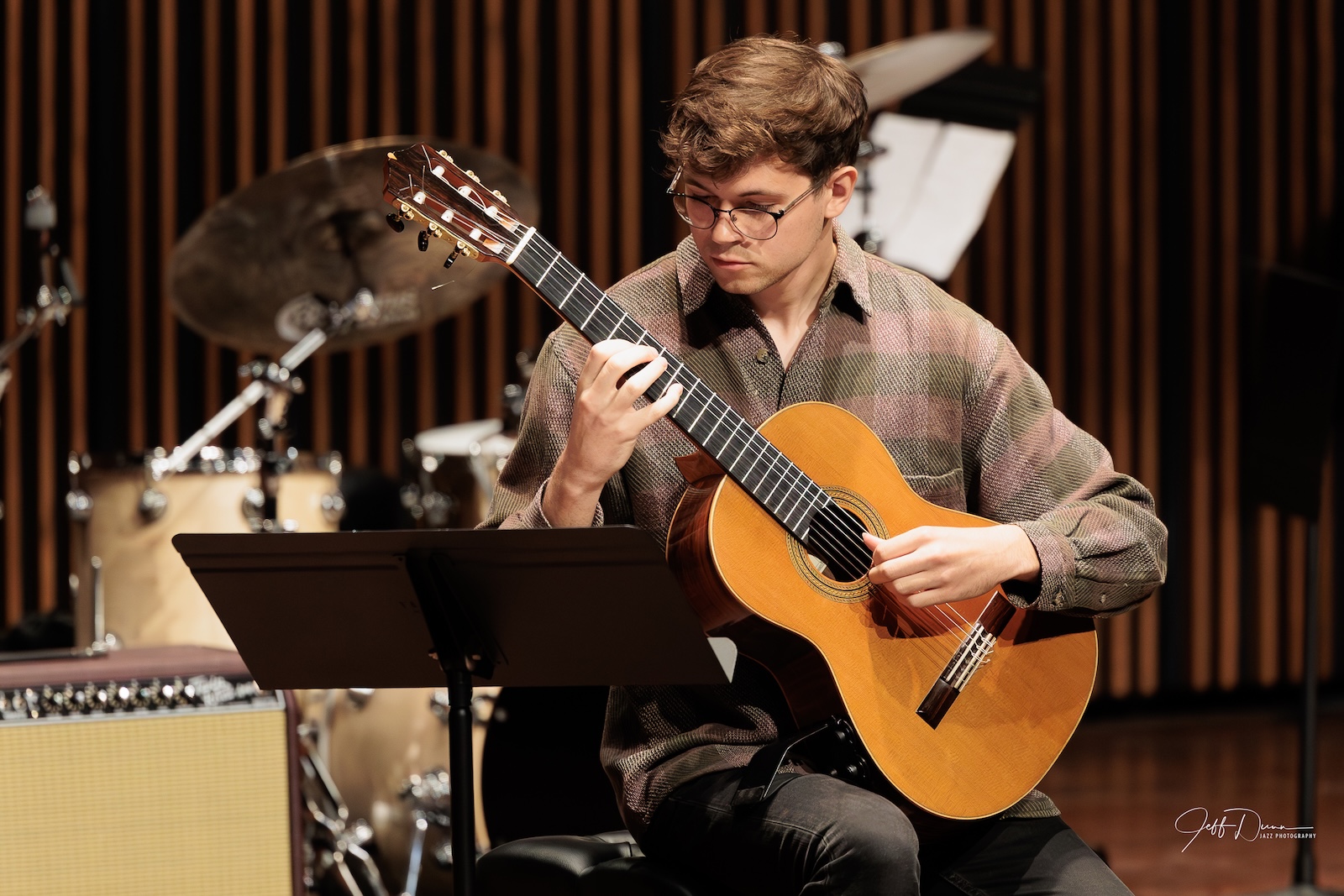Ambassador blog: How I’m preparing forty minutes of memorized music

By Graduate Ambassador Ben Chapman, a master’s student in music
My graduate recital is scheduled for early April this year. I will be playing forty minutes of solo classical guitar music, all of which must be memorized. I have tentatively memorized my program, and, in the roughly two months before my recital, much of my practice time will be spent maintaining the memory and refining the mechanical execution of my pieces.
Focus and form
Effective time management is important. For example, practicing for many hours at a time is not necessarily efficient. Much time is spent, but how was the quality of practice? Focus begins to fade at forty minutes to an hour, after which point practice can become disoriented. Form (the posture and technique a player uses to interact with the instrument) begins to slip and practice objectives become foggy.
Effective practice happens when a given action is repeated many times with good form. To realize this ideal, I limit my practice sessions to an hour and only work on a single piece, often focusing a handful of challenging passages within that piece. Although spending four hours on many different pieces feels like covering more ground, spending smaller amounts of time getting quality repetitions of specific challenge spots is more efficient in the long term.
In practice
Performing is another essential part of recital preparation. Creating the ‘feeling’ of performance is simple; all you need is a warm body in front of you, which gives a sensation unattainable in solitary practice. Handling the ‘feeling’ of performance must be practiced. I have found performance experience playing for my students, at my church, at the Classical Guitar Society of Michigan (open mic night for classical guitarists), and a collage concert at WSU.
In the past, I viewed my performances as singular events, spending hours preparing for one moment. I believe that mindset was unhealthy and focused too much on a point in the future and not enough on the process. Preparing a piece is a journey that, while challenging, can be rewarding at every stage. Undertaking a piece of music creates opportunities to grow physically and mentally, to experience a composer’s musical ideas, and to share music, often the same music, more than just once. Any given performance has begun before the first note and will stretch on after the last.
I will give my recital on April 11, at 7:30 in Schaver Music Recital Hall.